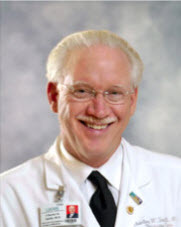
 Next week at the Connected Health Symposium in Boston, the Society for Participatory Medicine will launch its new journal. In keeping with the society’s spirit of physician-patient partnership, the Co-Editors in Chief are a physician and a patient: Charlie Smith MD (the primary physician of our founder “Doc Tom” Ferguson) and Jessie Gruman, Ph.D., who has beaten cancer three times using participatory principles. (See the biographies of the editors and advisors.)
Next week at the Connected Health Symposium in Boston, the Society for Participatory Medicine will launch its new journal. In keeping with the society’s spirit of physician-patient partnership, the Co-Editors in Chief are a physician and a patient: Charlie Smith MD (the primary physician of our founder “Doc Tom” Ferguson) and Jessie Gruman, Ph.D., who has beaten cancer three times using participatory principles. (See the biographies of the editors and advisors.)
In another post Gilles Frydman discusses “Why Participatory Medicine?” Here, the co-editors do a terrific job of answering the hand-in-glove question “Why this Journal?” It’s clear and compelling:
Why the Journal of Participatory Medicine?
Jessie Gruman, Ph.D. and Charles Smith, MD
Co-Editors-in-Chief
Achieving the benefit of safe and effective health care has never demanded so much from so many. Each of us has a role, and that role is changing with advances in technology and the delivery of care. No player – patient, care-giver, clinician, administrator, or payer – is expendable in the effort to improve the prevention, treatment and management of disease.
But the imperative to transform health care from a professional service delivery system to a mutually shared enterprise in which individuals – sick or well – play an active role has yet to be fully recognized by many clinicians, other professionals and the public. The development of new technologies has allowed us all to learn and communicate more efficiently and work to forge new ways of interacting with one another. But many remain unaware or unconvinced that advances in health care require a change in their own behavior to accommodate the reality that people now must participate actively in their care if they are to benefit from it.
Changes in health care are inevitable. The question is how can we ensure that all the parties keep pace with and gain from new developments? What does health care look like when it welcomes and supports individuals’ involvement in their care to the extent they are able? What will it take to shift the culture of medicine and the organization of care to respond to this imperative? What will make it possible for individuals to adapt to new expectations for active involvement and to act on their new responsibilities?
These are serious questions that require thoughtful consideration and a range of evidence to answer. Providing a venue for both is the purpose of the Journal of Participatory Medicine.
Participatory medicine is a cooperative model of health care that encourages, supports and expects active involvement by all parties (clinicians, patients, caregivers, administrators, payers and communities) in the prevention, management and treatment of disease and disability and the promotion of health.
The Journal will build the field of participatory medicine by serving as a single source of articles that demonstrate and illustrate what it is and what difference it makes in health outcomes. The types and categories of articles that we will consider for publication can be found in the Instructions to Authors[linked]. Because it is a new journal publishing multidisciplinary articles on topics within a field that has not yet been well defined, we have established parameters [linked] that define the journal’s range of interest. We anticipate that these parameters will be refined as the field develops.
The Journal of Participatory Medicine will publish continuously. Following the inaugural issue (due in early 2010) we will publish articles as they are reviewed, accepted and edited rather than in discrete monthly or quarterly issues. The journal will use the Open Journal System publishing platform developed by the Public Knowledge Project. We will use an all-electronic submission, editing, and publishing process. All research, clinical review, and case report submissions will undergo peer review prior to a decision to accept, reject or reconsider after revision. We aspire to an open review process that initially will be voluntary.
Our experience soliciting and editing the essays in this first issue demonstrate that the words “participatory medicine” mean very different things to different people. We invited essays from authors from a variety of backgrounds who have publicly committed to ideas that are central to participatory medicine. Each one writes in this issue about an aspect of participatory medicine from their own perspective, but each describes a slightly different set of concerns with different implications for future action. This is as it should be: The task of the journal is to piece together, from among multiple disciplines, professions, settings, roles and interests, the evidence and elements that will lead to a common vision — and eventually the reality — of health care that encourages, supports and accommodates the participation of individuals in their efforts to live long and well.
As co-editors, we are committed to modeling full participation in the publication of this journal. We function as a team, Charlie as a physician and Jessie as a sometimes patient and permanent consumer, both with solid experience in journal editing and production. We work closely with the Journal’s steering committee, editorial board, and advisory committee — each composed of individuals representing the broad range of health stakeholders – to bring their best ideas to the table for consideration.
We invite all professionals, patients, caregivers, former patients, health plan administrators, employers, union representatives, hospital administrators, clinicians, politicians, and policy makers to participate as well. We are just getting started. Join us. Read. Respond. Volunteer to review submissions. Submit your own work and your ideas.
As the editors of this journal, we share the belief that in order for people to benefit from the care available to them, health care must be participatory. The stakes of non-participation or ineffective participation are too high for individuals and the nation. We will dedicate our efforts in this journal to realizing the change this entails using the tools of science, critical review, consultation, experience and consensus.
The Journal of Participatory Medicine is an official publication of the Society of Participatory Medicine, a new nonprofit organization dedicated to defining, shaping and advancing the field. We acknowledge the group of determined, forward-thinking professionals led by the late Tom Ferguson, MD, that years ago began planning how to enable more effective provider/patient collaboration. This journal is the result of his belief that health care must involve much more active collaboration between patients and providers.






Trackbacks/Pingbacks